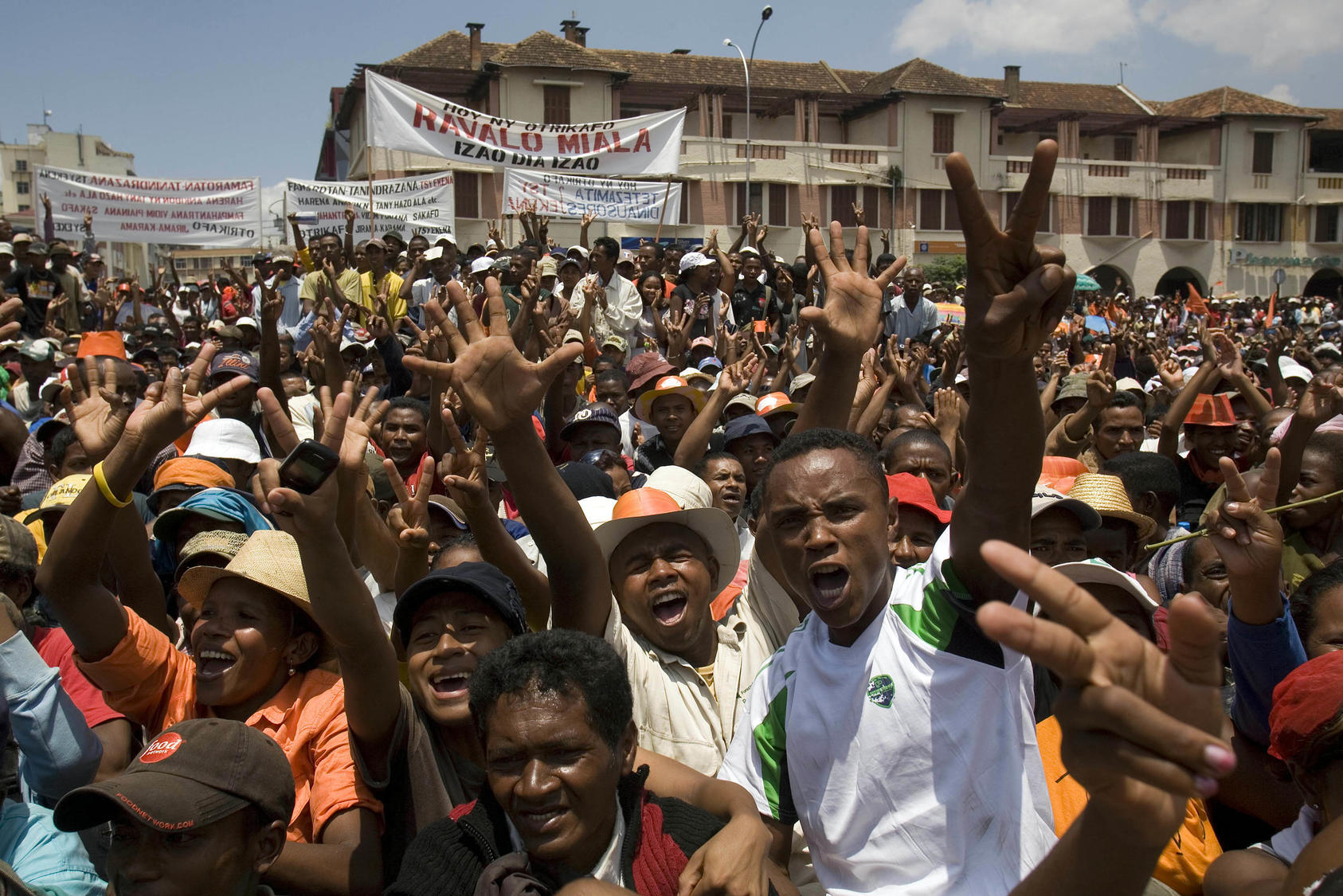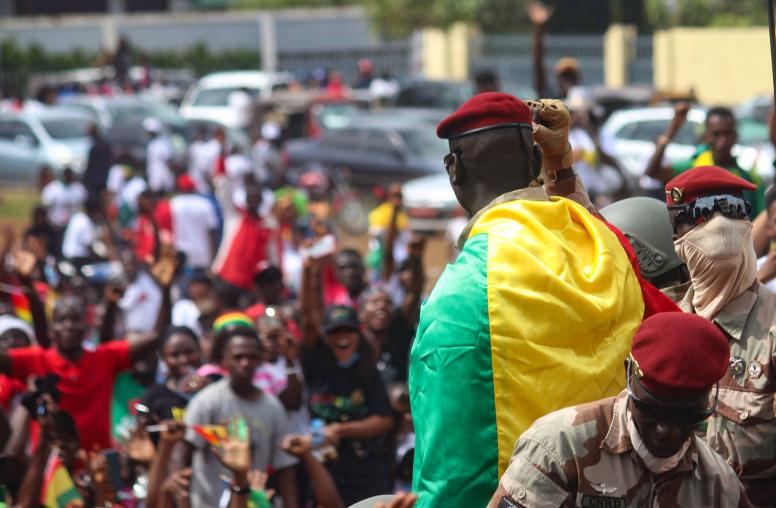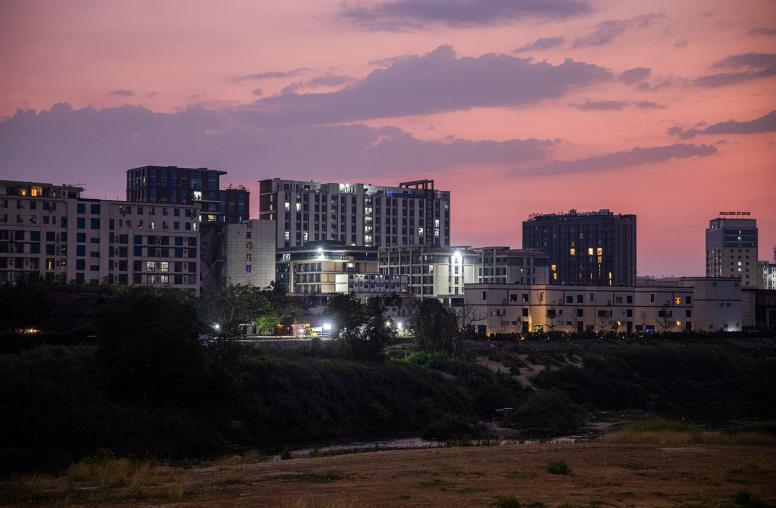In Madagascar, a Presidential Vote Sees Old Fissures Resurface
Will this island nation bring an end to its long-running political crisis?
On November 7, the Indian Ocean island nation of Madagascar, a country larger in area than California and more populous than Florida, goes to the polls to elect its next president. With a history of political crisis and fraught elections, the 2018 polls have seen renewed acrimony as no less than four former presidents of Madagascar seek the country’s highest office. USIP’s Aly Verjee and Jonas Claes discuss what’s at stake, the challenges ahead and how election disputes and violence can be mitigated.

What is at stake in these elections?
Verjee: Most immediately at stake is who holds the office of president. Four out of five of Madagascar’s most recent presidents are standing for the office: Hery Rajaonarimampianina, Madagascar’s president from 2014 to September 2018, who was required by the constitution to resign in order to be eligible to be a candidate; Andry Rajoelina, (2009-2014); Marc Ravalomanana (2002-2009), who was overthrown in a coup led by Rajoelina; and Didier Ratsiraka, Madagascar’s original Cold War strongman (1975-1993, 1997-2002). Three former prime ministers, and a further 29 candidates, are also on the ballot.
It is unlikely that any candidate will win an outright majority, which means a second round of voting will be required in December. The situation is already tense because of the history between these candidates: in the last elections in 2013, Ravalomanana, Rajoelina, and Ratsiraka were barred from standing for office, and Ravalomanana’s forced departure in 2009 and subsequent exile contributed to further political rancor. This year, an attempt was made by the government to exclude some opposition figures, including Ravalomanana and Rajoelina, from this year’s polls, triggering violence in April. After the courts intervened, President Rajaonarimampianina eventually backed down.
Regardless of who prevails, the 2018 elections are a broader test: can Madagascar bring an end to a long-running political crisis, dating at least to the 2009 coup, or will yet another chapter of dispute and violent contestation now be opened?
Despite its ample natural resources and a growing economy, Madagascar remains extremely poor. The World Bank has recently pointed out that the agricultural sector is contracting, “suggesting that the positive benefits of recent economic growth is not being felt by the rural population [who] are not experiencing significant improvements in their living conditions.” Madagascar is also of critical global importance because it is undergoing rapid environmental degradation and deforestation: as USAID has observed, given the country’s unique ecosystem, “the loss of one hectare of forest in this country can have a larger effect on global biodiversity than forest loss anywhere else on Earth.” Whoever ends up leading Madagascar will need to confront these serious and persistent challenges.
What challenges do the elections face?
Verjee: Madagascar is a vast and remote country, making electoral preparations and logistics extremely challenging. Moreover, the level of external logistical support extended to the 2013 elections may not be matched this year. For example, while the ballot papers continue to be printed abroad, in South Africa, the South African government has declined to provide additional financial assistance to the electoral process or help with domestic distribution of ballot papers. These elections are once again expected to be extremely expensive: on par with the most expensive votes in the world, per capita.
And if there is a run-off, the country will have to quickly mobilize to organize a second round. Ensuring that tensions are dampened in the period between the two votes may well be critical to ensuring further crisis does not ensue, when the run-off candidates will be jockeying to obtain the support of those unsuccessful in the first round. It’s also worth noting that parliamentary elections are due in early 2019, presenting another challenge for the country to confront.
It is unclear whether the candidates will accept the outcome of the polls, even if the vote is credible. In September, the government banned the publication of an independent opinion poll on voting intentions. And as recently as late May, the military has threatened to intervene if political leaders do not resolve their differences. Malagasy citizens have plenty of reasons to be concerned.
What can be done now to mitigate election disputes and violence? Are there relevant lessons from other countries?
Verjee: The 2013 elections saw extensive international mediation, much of which was led by the Southern African Development Community (SADC). Many of these efforts were unpopular with Malagasy citizens, particularly the decision to exclude Ravalomanana and Rajoelina. This may limit SADC’s ability to be as assertive this time around, although South Africa has remained influential behind the scenes. SADC, the African Union, and the European Union have or will send election observation missions, which, if their efforts are thorough, should address concerns over electoral fraud and irregularity. There is also a long tradition of domestic observation in Madagascar that will help illuminate what happens on Election Day . These messages need to be amplified.
Although many of the country’s institutions are weak, some analysts feel the judicial system, particularly the High Constitutional Court, has helped, to an extent, defuse some of the political disputes. Ensuring that the court can continue to function without political interference will be crucial in the weeks and months ahead.
Claes: With only a few days ahead of the election, the options for effective violence mitigation are limited. But Malagasy institutions, and the international observers, diplomats and assistance providers present in the capital, Antananarivo, and beyond will play a critical role in ensuring peaceful elections.
Liberia’s 2017 elections demonstrated the conflict mitigating impact of a professional and well-equipped police force at election events. The Kenya elections of 2017 confirmed that the quality of the election commission matters as well, both for the integrity of the process and the promotion of peaceful elections. Every electoral malpractice during the voting and counting process, or any case of fraud—whether real or perceived—provides an opportunity to losing candidates or spoilers to question the electoral process and mobilize people on to the streets.
Regional diplomats will play an important role in encouraging an inclusive electoral process, and a level playing field, as the run-off candidates begin their second-round campaigns. Together with local civil society, international diplomats are well-positioned to encourage the leading candidates to refrain from incendiary language and encourage resort to legal avenues in case of dispute.



